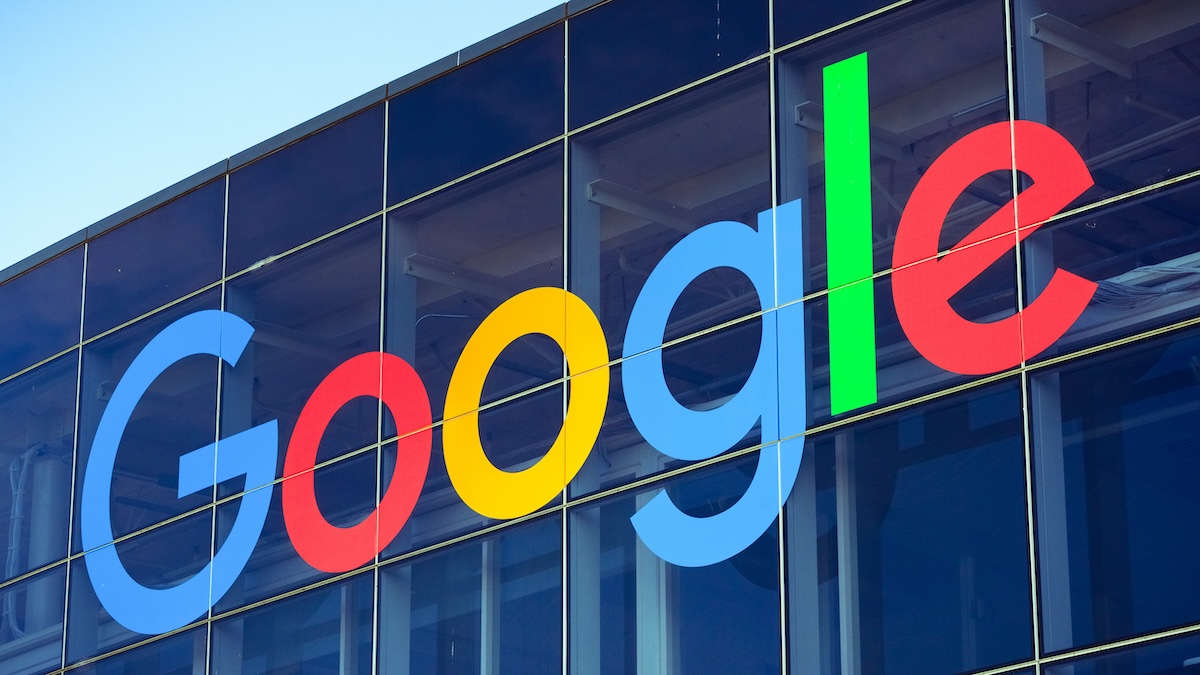Google Project Zero's New Policy Closes Upstream Patch Gap
Did you know that even after a critical **software vulnerability** is discovered and *fixed* by its creator, it can take weeks, or even months, for that essential update to reach your phone, laptop, or smart device? This silent, dangerous delay — known as the "patch gap" — leaves us all needlessly exposed to cyber threats.
 But now, **Google Project Zero**, the internet giant's elite team of vulnerability hunters, is making a bold and potentially game-changing move to shrink this window of risk. They're pulling back the curtain on the **vulnerability disclosure** process, and it could mean faster, stronger protection for your digital life.
But now, **Google Project Zero**, the internet giant's elite team of vulnerability hunters, is making a bold and potentially game-changing move to shrink this window of risk. They're pulling back the curtain on the **vulnerability disclosure** process, and it could mean faster, stronger protection for your digital life.
 The Invisible Gap Threatening Your Digital Security
The Invisible Gap Threatening Your Digital Security
 Imagine a ticking clock where every second a security fix isn't applied is another moment attackers could exploit a known flaw. That's the "upstream patch gap" in action: the time between an **upstream vendor** releasing a fix and **downstream vendors** (like device manufacturers or app developers) incorporating it into their products. This gap is a sweet spot for cybercriminals, and Project Zero is determined to close it.
Imagine a ticking clock where every second a security fix isn't applied is another moment attackers could exploit a known flaw. That's the "upstream patch gap" in action: the time between an **upstream vendor** releasing a fix and **downstream vendors** (like device manufacturers or app developers) incorporating it into their products. This gap is a sweet spot for cybercriminals, and Project Zero is determined to close it.
 For years, Google Project Zero has been a formidable force, hunting down **zero-day vulnerabilities** and giving vendors a strict 90-day deadline to fix them before public disclosure. This pressure has undoubtedly made the internet a safer place. But what happens after that fix is ready? The journey to your device can still be agonizingly slow.
For years, Google Project Zero has been a formidable force, hunting down **zero-day vulnerabilities** and giving vendors a strict 90-day deadline to fix them before public disclosure. This pressure has undoubtedly made the internet a safer place. But what happens after that fix is ready? The journey to your device can still be agonizingly slow.
 Google Project Zero's Bold Move: "Reporting Transparency"
Google Project Zero's Bold Move: "Reporting Transparency"
 Enter Google's new "Reporting Transparency" trial policy. This isn't just a tweak; it's a significant shift designed to inject more light into the often-opaque world of **cybersecurity vulnerabilities**.
Enter Google's new "Reporting Transparency" trial policy. This isn't just a tweak; it's a significant shift designed to inject more light into the often-opaque world of **cybersecurity vulnerabilities**.
 Here’s the bombshell: **within one week** of Project Zero reporting a bug to a vendor, they will publicly share crucial details. We're talking about:
Here’s the bombshell: **within one week** of Project Zero reporting a bug to a vendor, they will publicly share crucial details. We're talking about:
 * The fact that a flaw has been reported.
* The looming 90-day disclosure deadline.
* The affected product.
* The name of the vendor or open-source project.
* The fact that a flaw has been reported.
* The looming 90-day disclosure deadline.
* The affected product.
* The name of the vendor or open-source project.
 **Crucially, this new policy does NOT change Project Zero's long-standing 90-day disclosure deadline.** Vendors still have that vital window to patch their products. And rest assured, this transparency won't hand attackers a blueprint. No technical details, no **proof-of-concept (PoC) code**, or other revealing information will ever be shared. It's a signal, not a giveaway.
**Crucially, this new policy does NOT change Project Zero's long-standing 90-day disclosure deadline.** Vendors still have that vital window to patch their products. And rest assured, this transparency won't hand attackers a blueprint. No technical details, no **proof-of-concept (PoC) code**, or other revealing information will ever be shared. It's a signal, not a giveaway.
 **So, what's the real benefit of this early warning system? Keep reading to discover how it directly impacts your digital safety.**
**So, what's the real benefit of this early warning system? Keep reading to discover how it directly impacts your digital safety.**
 Why This Matters to YOU (And Your Devices)
Why This Matters to YOU (And Your Devices)
 Google believes this increased transparency will trigger a powerful domino effect, directly leading to a more secure digital ecosystem for everyone.
* **Faster Patch Adoption:** By providing an early signal that a **security defect** has been reported upstream, **downstream vendors** gain critical intelligence. They'll know to monitor for an impending fix, allowing them to integrate it into their products much quicker. This means less waiting time for you.
* **Improved Communication:** This policy is a catalyst for better dialogue between upstream developers (who create the software) and downstream partners (who use it). Everyone becomes more aligned, working towards the same goal: swift **software security**.
* **Reduced Cyber Risk for End Users:** Ultimately, the goal is to accelerate the journey of a fix from its initial report all the way to your device. Google wants to make it easier for researchers and the public to track this progress, especially if a fix seems to get lost along the way! Imagine getting crucial **digital security** updates weeks or even months sooner, dramatically shrinking the window of opportunity for attackers.
A Calculated Risk for a Safer Digital World
Google Project Zero acknowledges that this heightened public attention might feel uncomfortable for a small fraction of vendors, particularly those without a large downstream ecosystem. They might find themselves in the spotlight for issues only they can resolve.
However, Google is clear: "We believe the benefits of a fair, simple, consistent and transparent policy outweigh the risk of inconvenience to a small number of vendors." This trial is a testament to their unwavering commitment to global **cybersecurity** and reducing the collective **cyber risk** we all face.
**Will this bold experiment deliver a significantly safer digital future, where crucial updates race to your devices faster than ever before? Only time will tell.** One thing is certain: the conversation around **vulnerability disclosure** just got a lot more transparent, and that's a win for everyone who values their online safety.
Google believes this increased transparency will trigger a powerful domino effect, directly leading to a more secure digital ecosystem for everyone.
* **Faster Patch Adoption:** By providing an early signal that a **security defect** has been reported upstream, **downstream vendors** gain critical intelligence. They'll know to monitor for an impending fix, allowing them to integrate it into their products much quicker. This means less waiting time for you.
* **Improved Communication:** This policy is a catalyst for better dialogue between upstream developers (who create the software) and downstream partners (who use it). Everyone becomes more aligned, working towards the same goal: swift **software security**.
* **Reduced Cyber Risk for End Users:** Ultimately, the goal is to accelerate the journey of a fix from its initial report all the way to your device. Google wants to make it easier for researchers and the public to track this progress, especially if a fix seems to get lost along the way! Imagine getting crucial **digital security** updates weeks or even months sooner, dramatically shrinking the window of opportunity for attackers.
A Calculated Risk for a Safer Digital World
Google Project Zero acknowledges that this heightened public attention might feel uncomfortable for a small fraction of vendors, particularly those without a large downstream ecosystem. They might find themselves in the spotlight for issues only they can resolve.
However, Google is clear: "We believe the benefits of a fair, simple, consistent and transparent policy outweigh the risk of inconvenience to a small number of vendors." This trial is a testament to their unwavering commitment to global **cybersecurity** and reducing the collective **cyber risk** we all face.
**Will this bold experiment deliver a significantly safer digital future, where crucial updates race to your devices faster than ever before? Only time will tell.** One thing is certain: the conversation around **vulnerability disclosure** just got a lot more transparent, and that's a win for everyone who values their online safety.

Image 1

Image 2

Image 3

Image 4

Image 5

Image 6

Image 7

Image 8

Image 9

Image 10

Image 11

Image 12
Comments
Post a Comment